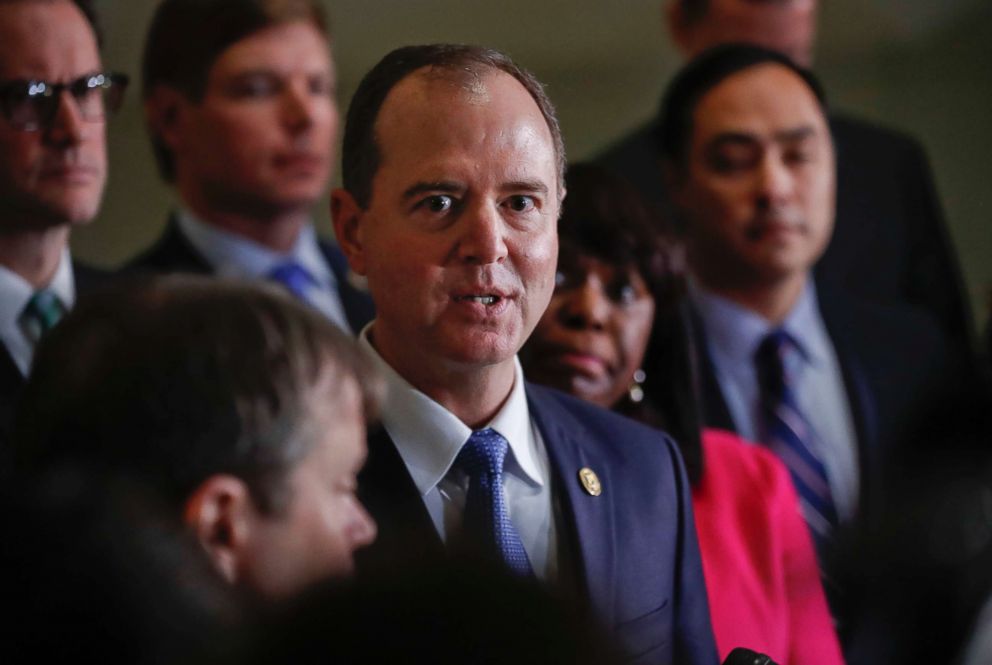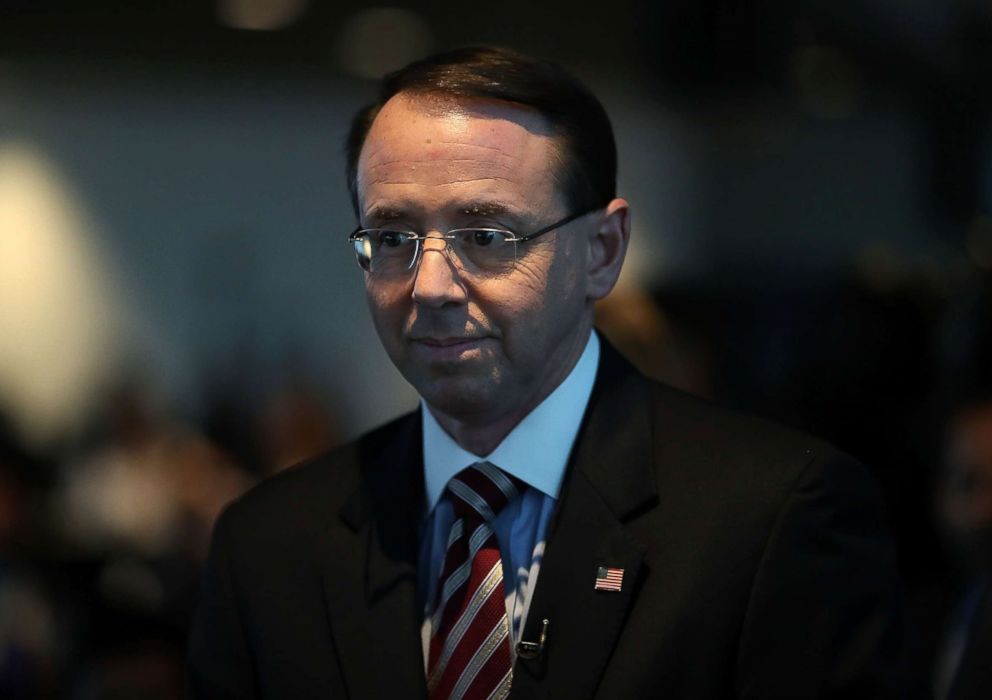What do we know about the GOP memo?
President Trump has allowed its release.
— -- The contents of the controversial Republican memo alleging abuses of government surveillance powers at the FBI and Justice Department have been hotly debated, and now the American public is now be able to read them in detail.
The document, authored by the Republican staff of the House Intelligence Committee, was released Friday after President Donald Trump declassified it and approved its release without redactions by that committee. The memo was made public despite "grave concerns" expressed by the FBI.
So why is the memo so controversial and what is in it? Here is the latest ABC News reporting on the document capturing the attention of Washington.
What is the classified GOP memo?
The GOP memo is a classified document drafted by the staff of House Intelligence Committee Chairman Devin Nunes - a loyal Trump ally. According to some Republicans, it shows "shocking" misconduct by the FBI. Fox News host Sean Hannity, who, at the time, had not seen the memo, said it "makes Watergate look like stealing a Snickers bar from a drug store." The top Democrat on the committee, Rep. Adam Schiff - who had seen the underlying classified intelligence - described the memo as a "profoundly misleading set of talking points drafted by Republican staff attacking the FBI and its handling of the [Russia] investigation."

What's in it?
The full text of the memo was released on Friday.
The memo had been kept in a classified setting, and only recently been made available to all House members. The underlying intelligence that the memo draws from had only been reviewed by a select few members of the House and Senate prior to its release.
The memo alleged that the FBI inappropriately relied on information obtained from a former British spy - working on a project funded in part by the Democratic National Committee and Hillary Clinton's campaign - to obtain a surveillance warrant in October 2016 on former Trump campaign official Carter Page, who had been suspected of being a Russian agent. It argues that the Justice Department, in its warrant application at the time, failed to inform an intelligence court judge that it was based in part on the Democratically-funded research. And, the memo references the actions of Deputy Attorney General Rod Rosenstein, who later supported a renewal of the surveillance warrant request regarding Page after Donald Trump took office.
It's also important to remember that all Foreign Intelligence Surveillance Act warrants are approved by a judge in special FISA courts.

Democrats who viewed the memo before its release or the underlying intelligence said Republicans cherry-picked information to support their conclusions. Sen. Mark Warner, D-Va., the top Democrat on the Senate Intelligence Committee, who viewed the underlying intelligence the memo draws from, told Politico that Republicans are “connecting dots that don’t connect.”
What was the debate over blocking its release?
On January 24 Assistant Attorney General Stephen E. Boyd sent a letter to Nunes' office, saying it would be "extraordinarily reckless" to release the memo without giving the Justice Department and the FBI a chance to review it first. Since then, FBI director Chris Wray has viewed at least part of the document during a meeting with Nunes on Sunday, according to sources. In a statement Wednesday, the FBI expressed "grave concerns about material omissions of fact that fundamentally impact the memo's accuracy."
Over those objections, the Republican majority on the House Intelligence Committee voted to release the memo. The White House said Thursday that Trump was inclined to formally support that decision.
Meanwhile, the FBI had been lobbying the administration to keep it under wraps. In a statement Wednesday, the FBI expressed "grave concerns about material omissions of fact that fundamentally impact the memo's accuracy."
Democrats put together a 10-page memo that they say refutes the Republican allegations by citing information Democrats say was selectively left out. Sources who have viewed the document, which has been made available to the full House but not made public, say it paints a fuller picture of the surveillance application and underlying intelligence that formed the basis of the request, including new information about why the FBI wanted to surveil Page. But committee Republicans have so far blocked Democrats' request to release their document simultaneously with the GOP memo.
Wednesday night, Schiff complained to Nunes that Republicans had made "material" changes to their memo after the committee voted to release it and send it to the White House. He argued that because the memo the White House was reviewing was not the one voted on, the president could not review it or authorize its release. A Nunes spokesman claimed the changes were minor including grammatical edits and some requested by the FBI and Democrats — and said Democrats were making a strange attempt to thwart publication.
How does this memo tie into other investigations?
The contents of this memo could be examined by the Justice Department's Inspector General. In January the DOJ's IG announced it is investigating a litany of matters related to Justice Department and the FBI ahead of the 2016 election, including “underlying investigative decisions” in the Hillary Clinton email probe; former FBI director James Comey’s July 5, 2016, announcement saying no charges would be filed against Clinton; allegations that FBI deputy director Andrew McCabe should have recused himself from certain cases including the Clinton email probe; and allegations that DOJ and FBI employees leaked information.




